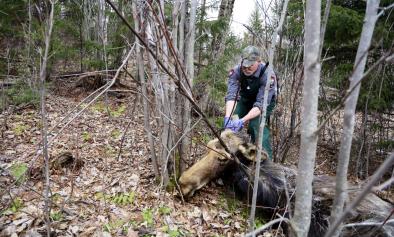Science Source
Leap‐frog in slow‐motion: divergent responses of tree species and life stages to climatic warming in Great Basin sub‐alpine forests
- States that in response to climate warming, subalpine treelines are expected to move up in elevation since treelines are generally controlled by growing season temperature
- States that where treeline is advancing, dispersal differences and early life stage environmental tolerances are likely to affect how species expand their ranges; species with an establishment advantage will colonize newly available habitat first, potentially excluding species that have slower establishment rates
- Uses a network of plots across five mountain ranges to describe patterns of upslope elevational range shift for the two dominant Great Basin sub-alpine species, limber pine and Great Basin bristlecone pine
- Finds that the Great Basin treeline for these species is expanding upslope with a mean vertical elevation shift of 19.1 m since 1950, which is lower than what we might expect based on temperature increases alone
- Finds that limber pine is successfully “leap-frogging” over bristlecone pine
- Results indicate the potential for the species composition of treeline to change in response to climate change
- More broadly, it shows how species differences in dispersal and establishment may result in future communities with very different specific composition
Related Content
Science Source
| Global Change Biology
Decadal-scale phenology and seasonal climate drivers of migratory baleen whales in a rapidly warming marine ecosystem
Daniel E. Pendleton, Morgan W. Tingley, Laura C. Ganley et al
Headline

May 19, 2022 | Climate Nexus Hot News
Climate Change Great For Winter Ticks, Very Bad For Moose Calves
Science Source
Climate change increases cross-species viral transmission risk
Colin J. Carlson, Gregory F. Albery, Cory Merow et al
Science Source
| Journal of Animal Ecology
Climate change affects bird nesting phenology: Comparing contemporary field and historical museum nesting records
John M. Bates, Mason Fidino, Laurel Nowak-Boyd et al


